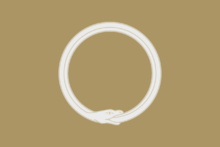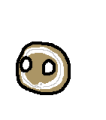Circulus, full name Circulus Theory, is a ![]() Left Unity, socialism-based economic system who is a product of
Left Unity, socialism-based economic system who is a product of ![]() Utopian Socialism and is a bastard son of
Utopian Socialism and is a bastard son of ![]() Agrarianism. He wants to resolve the Malthusian Catastrophe by collecting human feces as taxes. According to Circulus, human excrement has remarkable fertilising properties, which society fails to harness. The human waste that is otherwise discarded would fertilise agricultural production sufficient to cover society's progressively increasing food consumption. Circulus posits the existence of a natural law dependent on the circulation of human excrement back through the agricultural process and which maintains a necessary balance between soil fertility and inexorable population growth. In other words, he likes excrements.
Agrarianism. He wants to resolve the Malthusian Catastrophe by collecting human feces as taxes. According to Circulus, human excrement has remarkable fertilising properties, which society fails to harness. The human waste that is otherwise discarded would fertilise agricultural production sufficient to cover society's progressively increasing food consumption. Circulus posits the existence of a natural law dependent on the circulation of human excrement back through the agricultural process and which maintains a necessary balance between soil fertility and inexorable population growth. In other words, he likes excrements.
Personality
To some he is vulgar, and to others he is disgusting. What we can say about him is that he is extravagant, and he likes such things as the Ouroboros. He may see for hours how a snake eats himself or a dog running to its own tail. Circulus is a fan of the Parseltongue from Harry Potter and his favorite film is "The Human Centipede". He is very social and likes to start a conversation with some words about excrement. Even with his peculiar likes, he is very kind and cheerful.
How to Draw

- Draw a ball with eyes and fill it with brown
- Draw a white circle in the center
- Add a snake head at the bottom
- (Optional) Draw with him an excrement
| Color Name | HEX | RGB | |
|---|---|---|---|
| Brown | #AB9565 | 171, 149, 101 | |
| White | #FFFFFF | 255, 255, 255 | |
Relationships
Friends
 Utopian Socialism - You are the only one who understands me.
Utopian Socialism - You are the only one who understands me. Reactionary Socialism - He gets it!
Reactionary Socialism - He gets it! Wait, are you making fun of me? Stalinism - Collecting
Stalinism - Collecting  Mao's poopoo [1] is incredibly based.
Mao's poopoo [1] is incredibly based. Kakistocracy - Fellow coprophile.
Kakistocracy - Fellow coprophile. Heinrich Himmler - Yes, clog the toilet some more, please.
Heinrich Himmler - Yes, clog the toilet some more, please. Sewer Socialism - The sewer has lots of poopoo!
Sewer Socialism - The sewer has lots of poopoo!
 UJANism - Good job with
UJANism - Good job with  Matteo Thought.
Matteo Thought.
Frenemies
 Agrarianism - Why do you hate me?!
Agrarianism - Why do you hate me?!
Enemies
- I have no enemies
hahahahaha.


